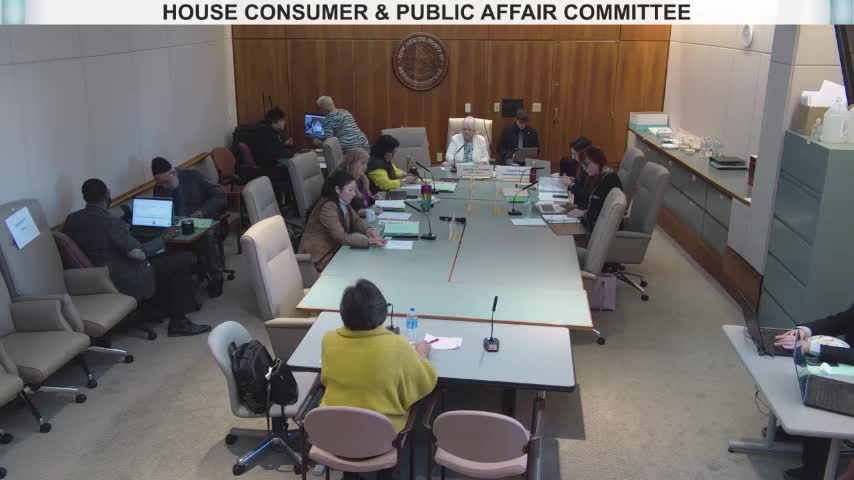Committee gives due pass to bill creating commission to study grocery prices
Get AI-powered insights, summaries, and transcripts
Subscribe
Summary
Representative Gail Little introduced House Bill 17 to create a nine‑member commission to study rising grocery prices and recommend ways to reduce costs, and the House Consumer and Public Affairs Committee gave the bill a due pass by a 4‑2 vote.
Representative Gail Little introduced House Bill 17, telling the committee she drafted the measure after a personal experience at a grocery checkout left her surprised at the total on her receipt. “I remember thinking, of the families in our district, and I’m wondering how are they managing this,” she said as she described seeing $78 for three bags of groceries.
The bill would create a nine‑member Commission on Reduction of Grocery Costs to study grocery prices across the supply chain, make recommendations to the Legislature and relevant agencies and report its findings by Nov. 15. It includes a $400,000 appropriation to the Economic Development Department; the bill text names the New Mexico Department of Agriculture as an entity that would help support the commission’s work.
Supporters who spoke at the hearing included Sergio Matas Cisneros of The Food Depot and Judy Nessel of Lutheran Advocacy Ministry in New Mexico and the New Mexico Conference of Churches. Matas Cisneros said the Association of Food Banks of New Mexico stands in support. Nessel told the committee she appreciated the bill’s “fair and systematic approach” and its interest in increasing locally grown food in markets.
Committee members pressed the sponsor on scope and likely outcomes. Representative Fluor asked how the commission would address supply‑side shocks such as avian influenza that can sharply raise egg prices; Representative Little replied the commission’s work would examine the entire food chain and provide recommendations to agencies such as the Department of Agriculture.
Members also discussed enforcement tools and whether existing price‑gouging protections administered by the attorney general’s consumer protection unit would be examined; the sponsor told the committee the commission would assess current state protections against rapid price increases.
After public comment and debate, the committee recorded a due‑pass recommendation on House Bill 17. The committee vote was 4 in favor and 2 opposed.
If enacted, the bill would be advisory: the commission would study causes and recommend statutory, regulatory or administrative steps for agencies and the Legislature to consider. The bill sets a one‑year timeline for the commission’s work and specifies an interim report deadline of Nov. 15 of the same year.
The committee advanced the bill to the next stage with the due‑pass recommendation; the measure will proceed to further floor and committee action as scheduled.
